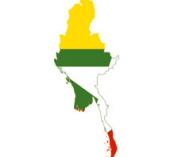
Five months after violence disrupted humanitarian operations in Rakhine state, the ICRC has restarted a full range of activities there for the Muslim and ethnic Rakhine communities alike.
"The Muslim and ethnic Rakhine communities are both suffering the long-term effects of violence. Access to essential health care and clean water has been seriously affected, as has the capacity to earn a livelihood," said Enrique Ochoa, head of the ICRC’s office in Sittwe. Since resuming its programmes in May, the organization has been tackling a broad range of problems faced by both communities.
"We are in regular contact with community leaders to help define programmes and tailor them to meet specific needs in a transparent and independent manner," added Mr Ochoa.
The ICRC is carrying out 14 hospital restoration projects in Rakhine designed to enhance health-care infrastructure and services. At the same time, it sponsors the work of local health personnel, including midwives, and contributes to trauma-care training for doctors from various townships. In addition, the ICRC has donated solar-powered refrigerators to support national immunization programmes in the state, and continues to donate medicines and medical consumables to the local ministry of health for use in Sittwe and other township hospitals and mobile clinics.
The full article continues at https://www.icrc.org/en/document/myanmar-violence-rakhine-creates-long-term-needs on the International Committee of the Red Cross website.

